Where to Buy Seeds
Once gardeners get an idea what crops they want to plant, beginning gardeners ask, “Where should I buy seeds?” With a plethora of sources — local options, online seed companies, and seed catalogs — it’s hard to know the best places to buy your garden seeds.
While longtime gardeners already have their favorite seed companies, beginners aren’t sure where to start.
One thing is for sure: quality matters. Here you’ll find the benefits and drawbacks of local seed sources and online seed catalogs, along with tips to help you know how to choose your best vegetable garden crops and where to buy seeds. Click below to hear this episode on the Beginner’s Garden Podcast, or keep reading.
Buying Local: Seed Sources Near Me
Most beginners start out buying seeds locally for many reasons. Maybe that’s the only option they know at first. Or maybe they don’t have time to wait for a seed catalog order to arrive. But even when purchasing garden seeds locally, there are pros and cons to the different places you can buy seeds.
Big Box Stores
There’s no question — buying seeds from a local big box store or garden center is likely the most convenient option. It’s easy to pick up seeds while you’re already there for other items, and for the most part, you get a decent selection.
Big box stores also carry seeds of vegetables, fruit, and herbs that are regionally appropriate. You don’t have to worry, then, whether a particular variety is suited to your climate. You’ll also find a selection of heirloom, hybrid, and organic seeds.
But, in my experience, seeds purchased at big-box stores simply do not germinate as well as some of the options I’ll share below. In fact, it wasn’t until I started purchasing from reputable online seed companies did I realize what a difference a good quality seed source makes.
Another drawback is not knowing what you’re supporting with your purchase. (Related: How to Keep Monsanto Out of Your Garden.) Seeds that home gardeners purchase are generally not GMO, but many people — including me — would rather support seed companies who are 100% on-GMO and have signed the safe seed pledge.
Feed Stores and Farmer’s Co-Ops
As a first-time gardener, I didn’t realize all that feed stores or farmer’s co-ops had to offer. Besides being my go-to source for buying seed potatoes and onion transplants, I’ve found feed stores to offer a great selection of the most commonly planted crops in my area.
The seeds they offer will grow in your region, and I’ve found them dependable in their germination and growth. They’re also economical especially when purchasing a larger quantity. One seed packet of green beans, for instance, would never have given me enough, but in my feed store, I pay by the scoop, giving me much more quantity for a similar price.
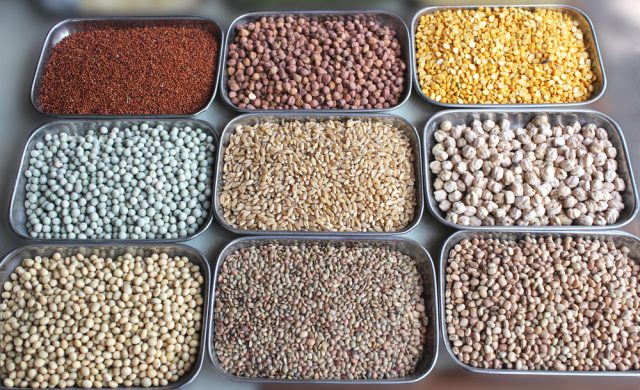
They also, in my experience, have a limited selection of each crop — which can be a benefit for beginning gardeners. How many times have I become overwhelmed with the vast selection in a bright, shiny seed catalog? I just want a simple squash, for goodness’ sake! With my local feed store, I can choose a reliable variety for my climate without the overwhelm of endless choices.
I suppose the limited selection also can be a drawback if you’re looking for specialty seeds. That’s why I usually source my feed store for specific crops — beans, corn, or a new crop I’ve never tried before and I’m not ready to venture out into exotic varieties.
They also still have seeds for fall gardening, when many times the big-box stores have taken down their seed displays.
One final benefit of feed stores and farmer’s co-ops that must be mentioned is the personal service. They local workers can give you specific planting advice or their tips on how particular varieties perform. For a beginner, this local information can prove incredibly helpful for a beginning gardener.
Nurseries
An overlooked option for seed purchasing is your local nursery. In my area, the local nurseries have a small seed display. Like big box stores and feed stores, you’ll find the selection suitable for your region, and like feed stores, local nursery workers have a wealth of information to offer you.
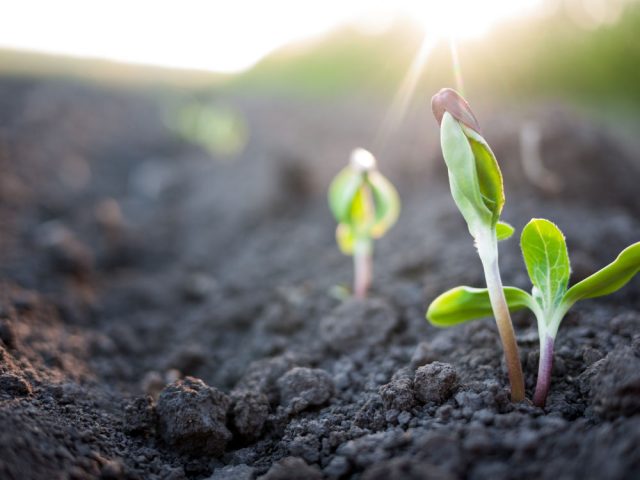
The only advice I’d offer before purchasing seeds from a local nursery is to consider the source of the seeds. The ones I’ve seen have been similar to the seed suppliers the big box stores use, so ask questions if that’s a concern for you.
Seed Swaps
Many towns will offer seed swaps, where gardeners who have saved open-pollinated seeds will share their excess with others. I’ve also seen seed swaps online.
In my first season gardening, my mom visited one of these swaps for me and obtained several different varieties of seeds for me. Some grew well, some didn’t. The benefits of local seed swaps are what you’d think — most of the time they’re free, you’re supporting your community, and the varieties are well-adapted to your region.
But the home gardener’s seeds aren’t subject to inspection and testing like other seed companies, so you are taking a chance when it comes to germination. You also have no way of knowing if the open-pollinated seeds could have been cross-pollinated with another variety, resulting in a natural hybrid seed. These won’t produce true if they grow at all. As long as you understand the risk, it may be worth considering for the cost savings.
Buying Seeds Online or from Seed Catalogs
Another option to buy seeds is through online sources and seed catalogs. In fact, most experienced gardeners I know purchase most, if not all, of their seeds this way.
Depending on your preference, you can choose to buy from heirloom seed companies, organic seed companies, regional seed suppliers, non-heirloom-specific seed sources, or a combination of these.
The most obvious benefit to buying straight from a seed supplier is the selection. You can dream of unique varieties not typically available locally, and you can venture out and experiment with crops you’d never find at your grocery store.
When browsing through seed catalogs or an online seed store, you generally learn more details on each specific crop. What growing conditions are best? What will the final crop look like? What’s its growth habit? Is it disease resistant? You can become a detective and find a variety that interests you and has the best chance in your climate. Online reviews are also very helpful.
Perhaps the reason I prefer buying most of my seeds online or from seed catalogs is that in my experience, when buying from reputable seed companies, the germination rate was unparalleled. And as long as I chose crops adapted to my region, they grew best and gave me the most abundant harvests.
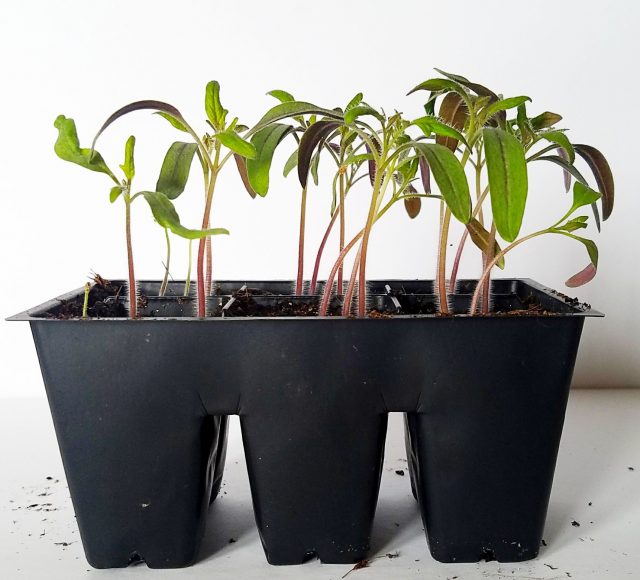
Now, all isn’t rosy in the online and seed catalog world. Too much selection can prove daunting for a beginning gardener. And you may not know what will grow best in your region. You’ll also pay a bit more and in most cases, you’ll have to pay a modest amount for shipping.
This is why I’m strategic about where I buy seeds — both locally and online — for the most reliable seeds, best selection, budget-friendly options, and most promising harvest.
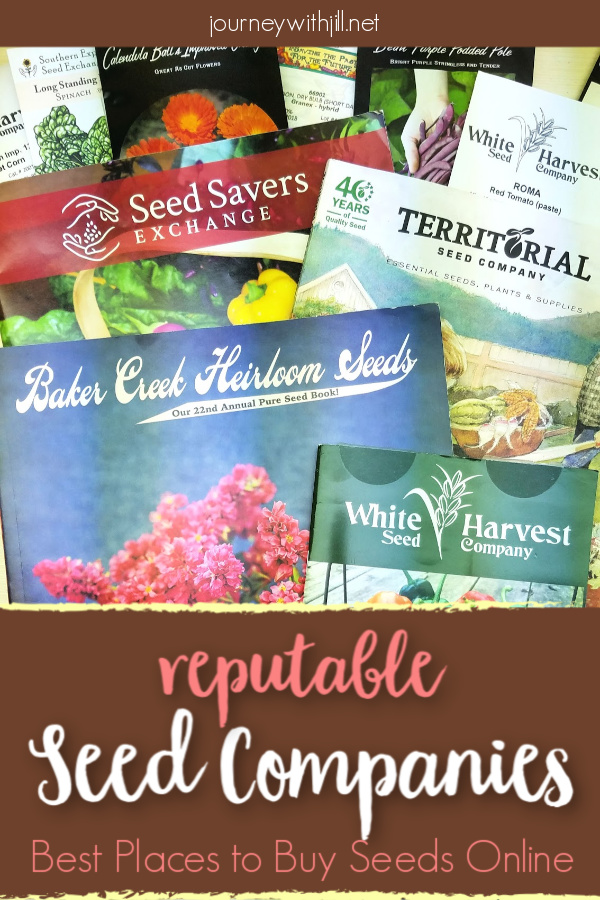
Best Places to Buy Seeds Online
If you’re wondering what are the best seed catalogs, there are many reputable seed companies to choose from. Gardeners have their favorites, and I’ll list the ones below that I’ve personally had good experience with. (Feel free to add yours in the comments!)
White Harvest Seed Company
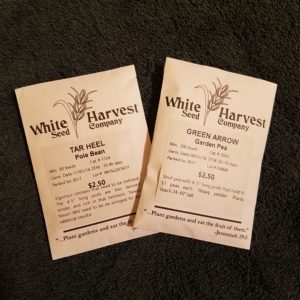
White Harvest Seed is a small, family-owned company located in southern Missouri. I have been buying seeds from them for many years, and their seeds have always — without exception — performed with excellence. They are an heirloom seed company and have top rate customer service. You can listen to my interview with the owner, Mike, in two previous podcast episodes here and here.
Baker Creek Heirloom Seeds
Baker Creek Heirloom Seeds is one of the most popular heirloom seed companies in the US. With a drool-worthy full-color seed catalog, you are certain to find plenty of options for your garden. These seeds always perform well in my garden, given I have done the research to choose varieties suitable for my area.
Southern Exposure Seeds
Don’t underestimate the importance of growing crops suited for your climate. As a gardener in the southeast, I’ve enjoyed the peace of mind that comes from buying from Southern Exposure Seed Exchange. Even if you’re not in the Southeast, look for reputable seed companies in your area for climate-specific varieties.
Territorial Seed Company
Last year I was looking for specific cover crop seeds that I couldn’t find in my other sources, but I found them at Territorial Seed Company. After ordering, I received their catalog and saw their selection of heirloom, organic, and hybrid seeds. For those who want a trustworthy source who has signed the Safe Seed Pledge (100% non-GMO) but also offers hybrid varieties, I’d recommend Territorial Seed.
Seed Savers Exchange
Seed Savers Exchange is a non-profit with the purpose of conserving and promoting a wide variety of seeds. You can find both mainstream and unique seeds here and support a worthy mission as well.
How to Buy Garden Seeds
With all these options to buy seeds, how do you go about buying seeds?
Research the Seed Company Online
If you find your mailbox full of seed catalogs, research the seed company before placing any order if it’s not one you’ve ordered from before. I had a bad experience one year because I failed to do this. Look up reviews and make sure you’re buying from a reputable source.
Read Reviews of Seeds
Online reviews are also a great source of help in choosing your seeds. I like to read the reviews at Baker Creek Heirloom Seeds and scan for reviews from gardeners with a similar climate to mine. I did this when deciding which new pole bean variety to try.
Ask Gardeners their Favorites
If you know of local gardeners, ask them their favorite varieties to grow. Gardeners love to share this information! If you don’t know any local gardeners, ask growers at your Farmer’s Market, or even look for a gardening Facebook Group and ask there. Or, like mentioned previously, ask the workers at your feed store, farmer’s co-op, or nursery.
Buy seeds as cheaply as possible.
Be smart about your seed buying. Those $2 seed packets can add up quickly. As you’re browsing through catalogs, make notes of how many seeds you get in a packet as well as the price so you can compare “apples to apples” (no pun intended). Also consider shipping. One source may have higher priced seeds and free shipping, while one may have lower priced seeds but a higher shipping amount. (I track all of this in my Seed/Plant Research Sheet in my Complete Garden Planner, available here.)
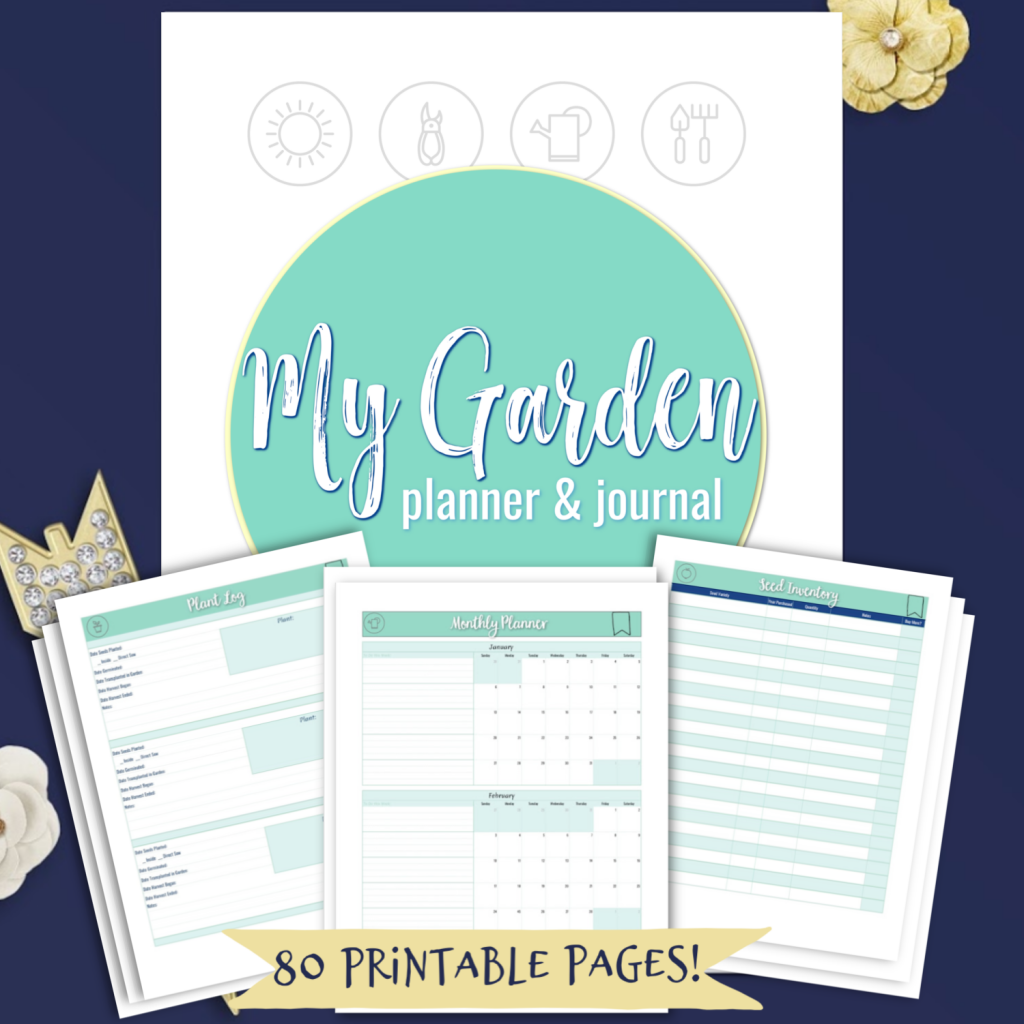
Buy smart by planning your garden first.
I’m big on garden planning, and this is one reason why. Before you ever purchase a packet of seeds, make sure you know your garden goals and have even planned your garden layout. From your layout you can calculate how much of each seed you’ll need. Nothing is more frustrating than running out of seed as you’re planting!
For guidance in planning your garden, check out my online course, the Beginner’s Garden Shortcut or my eBook, the Beginner’s Garden Shortcut QuickStart Guide.
–
Learning how to source garden seeds can seem like a daunting task, but keeping these considerations in mind, I hope you’re better-equipped as you start planning your seed purchases for this year!
Seed Starting Quick Reference Guide
Which seeds should you start indoors? Which should you wait to plant directly in the garden? When? And in what soil temperatures do certain seeds germinate better? Grab this one-page quick reference guide to get your seeds sprouting and your plants growing strong!
Plus, I'll send you my "In the Garden E-mail" on Fridays, periodic updates on garden resources relevant to you, and get access to my entire bank of free garden downloads!
You are also agreeing to our privacy policy.

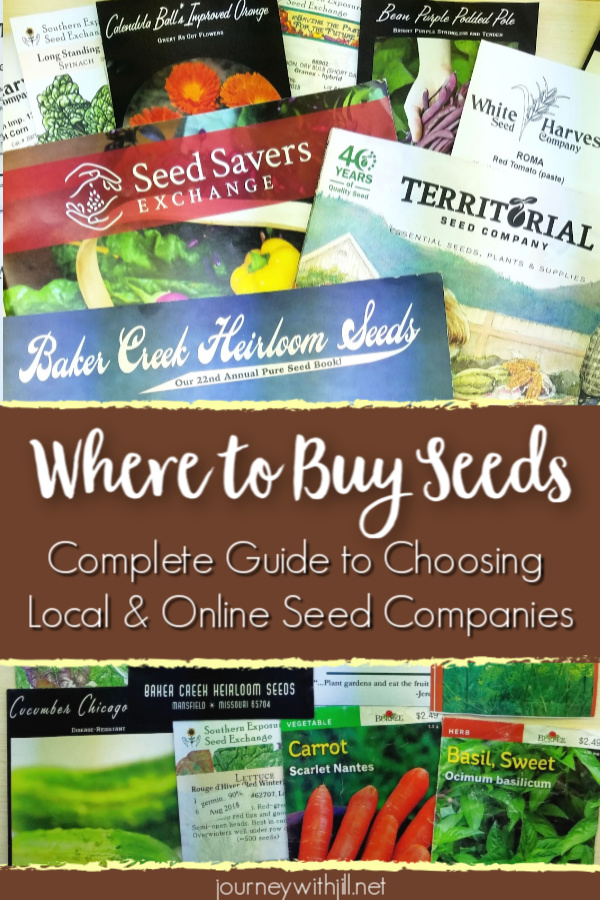
awesome podcast, thanks. I find myself getting a little too seed happy these days, buying more than what I actually need. I went to start my tomatoes and realized that all the sungold tomato seeds had spilled out and were lost. Feeling frustrated about that!
Oh no! I’ve heard great things about Sungold! I haven’t tried them myself yet.
Do you have any recommendations for buying trees or canes?
I recommend you purchase from a reputable, local nursery. NOT a big-box store. Your local nursery will stock the kinds that work best for your area and they will be well taken care of. If your nursery doesn’t stock the items you need (as mine doesn’t always), I have had good success purchasing from Stark Bros. Nursery online. I’m sure there are other reputable online nurseries, but I can personally vouch for Stark Bros.
I bought a sun gold cherry tomato plant & I have so many tomatoes. They are so sweet. I have roasted them & added them to my fresh tomatoe sauce, made a pesto with them that is so good. The recipe I used for pesto is on Giada’s website. I still have a ton on my plants that I am waiting to ripen. One thing I found is that if you wait too long & they turn red, they split.
At 82, I am a first time raised Gardner. Loving it.
I’ve heard great things about the Sun Golds. So glad you’re enjoying your first time doing a raised bed garden!
Hey Jill,
Just wanted to let you and everyone else know that I bought garlic from Territorial Seed Co last year. I would not hesitate to purchase anything from them. Service was great! All the garlic is coming up nicely!
They have quickly become a favorite of mine as well!
I’d like to add one more great place: Athena Garden.